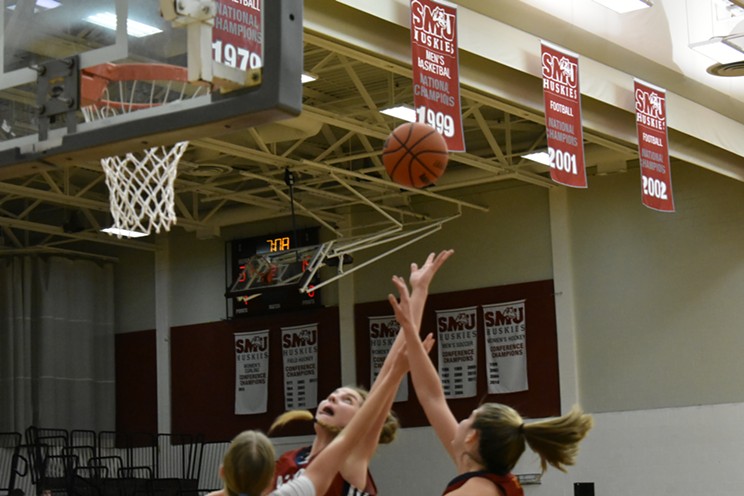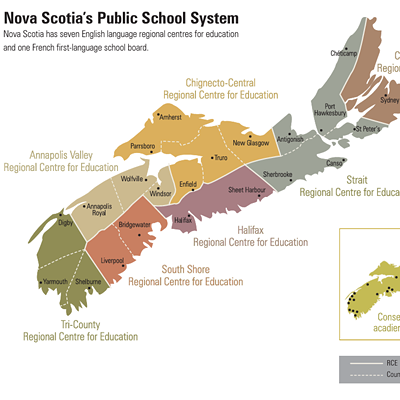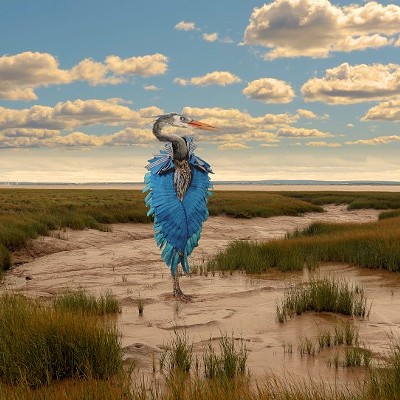University sports are growing in Canada. They can be the reason students move across the country to study and compete, they can build exciting inner-and-outer provincial rivalries, and they can allow families and fans of athletes to follow their journeys from afar—with the help of live streaming.
“Our student-athletes give everything they have for their sport, and it's great entertainment,” says Phillip Currie, president and CEO of Atlantic University Sport. AUS TV broadcasts live sports coverage of east coast schools in their conference throughout the regular and postseason. The service used to be free. This season, it comes with a tiered price tag. Changes include an AUS TV app service so fans and families can watch on their TVs and phones and a bilingual French and English AUS TV website.
Atlantic University Sport introduced regular season paid subscription options in August. Now, fans and families of athletes will have to pay $7.99 for a single game, $39.99 for a single sports pass or $99 to watch all AUS sports throughout the regular season. Post-season playoffs, games, and championship weekends will cost extra.
Single game passes and single sport passes are available for the following sports, says the AUS release: football, rugby, soccer, basketball, hockey and volleyball.
Some sports events, like varsity swim meets, are "invitationals” run by hosting schools, says Currie, so are not official AUS events and are available for the AUS TV single game pass or sport pass. Currie says that if those events are live-streamed by each hosting school, they’ll be available to watch through AUS TV for free.
This will apply to curling, track and field, cross country, and swimming. Championship weekends in these sports, which are AUS events, will be available to watch through weekend passes for $19.99. These passes apply to swimming, curling, track and field, football’s postseason and rugby’s postseason.
There are two governing sports bodies for postsecondary athletics in Canada. Bigger universities in Nova Scotia, New Brunswick, PEI, and Newfoundland and Labrador compete primarily in the Atlantic University Sport conference of the national U SPORTS body. The AUS schools in Nova Scotia are Acadia University, Cape Breton University, Dalhousie University, Saint Mary’s University and St.FX University.
However, some east coast universities also compete in the equivalent body for organized sports in Canada through the Atlantic Collegiate Athletic Association conference of the national CCAA body. ACAA TV broadcasts soccer, volleyball and basketball for free. ACAA varsity schools in Nova Scotia are l' Université Saint-Anne, Mount Saint Vincent University and the University of King’s College.
Suzanne Hamlyn is the parent of a varsity swimmer at Acadia University. She says the $99 option, which would ensure her access to watching swimming on AUS TV, is “a bit hefty” because she only uses AUS TV once or twice a season.
“I think it's a great deal for people who maybe watch all the sports, but for someone who just uses it maybe once or twice a year, I would like to still have the option of paying per event.”
Hamlyn usually watches her daughter’s meets in person, when she can, which she notes are free to attend. But when she’s out of town, or there’s a meet in New Brunswick, or her family in Newfoundland want to tune in—then they’ve turned on AUS TV. In February, when AUS TV introduced paid championship passes, Hamlyn paid. It was $14.99. This was fine, she says, and she didn’t mind paying.
Hamlyn adds that she doesn’t mind paying a single game fee for regular season meets, either. “I'm fine with that because I know there's a cost to them doing this, and it's a great service,” she says, “but I wouldn't pay for the $99—that would be a bit much. Probably a lot of the swimming families would feel the same way.”
When AUS announced the new service fees in August, people had mixed reactions online, from saying it should be free to saying they would choose to pay for other U SPORTS conferences to saying the AUS TV quality isn’t worth $99.
Says Hamlyn, “there have been a couple of events when I've been in Newfoundland, and I've found the quality pretty good. Every now and then, the sound will cut out a bit, which is unfortunate, so if paying for it is going to increase the quality of that, then that's great.”
Currie says these comments online are based on misunderstandings of what it costs to run AUS TV. “We’re talking hundreds of thousands of dollars for this particular aspect of our business.”
Currie says the switch from free to premium “is really the only way that we can continue to provide [AUS TV] at the level we provide.” Being able to offer varsity sports for families and fans to watch for free “was always a philosophy we had—we wanted to provide free access for as long as we possibly could.” But it’s reached a point “where it’s just not feasible anymore.”
Currie adds that compared to the cost of going to ticketed AUS events, paying the single sport pass of $39.99 “boils down to about $2 per game,” he says. “It's very good value comparatively.” (Regular season games and championships cost money to watch in person, and in February AUS introduced a paid championship weekend pass for AUS TV.)
Other revenue generators for the AUS are membership fees from schools that compete, and ticket fees from large events, like the AUS Basketball Championship, which Currie says earned roughly $100,000 in February of this year.
He says running the AUS regular season conference costs roughly $1.2 million per year, and the cost of producing regular season AUS TV is approximately $600,000 per year. Individual schools produce their own live stream coverage, sometimes with outside production staff, and their production costs are recuperated through the AUS funneling the revenue directly back, minus a small management fee, says Currie.
“We want to make sure that people from anywhere who have children in [the AUS] have an opportunity to view them. That's always been our philosophy.”

Currie says the worst thing that could happen is for AUS TV to stop entirely because it cannot afford to continue.
“We’re at a point if we don't do this, we’d get to a point where we just couldn't afford to deliver it anymore, and that would be terrible for parents from across the country who send their children to Atlantic Canada to get an education and compete.”
Currie says their free subscription service was made possible through partnerships with partners and providers, including Bell, who were able to support them logistically and financially, but that’s changed for a number of reasons, including regulatory changes to Bell’s live coverage of events. Then, AUS tried to bring in sponsors to cover operating costs, but “that just wasn’t working anymore.”
Currie says adding a paid service fee “was the only option available to us” to recuperate losses and build towards continued and improved coverage. "We want to grow it, and we want to do better as an organization and provide a better product–and all that costs money.”













